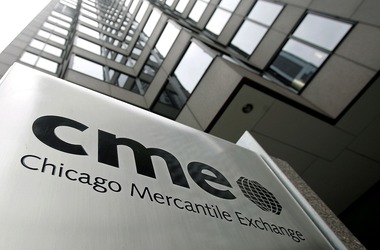
Google, on the other hand, would not disclose the overall value of the transaction. This isn’t your typical cloud-computing arrangement, according to Philip Moyer, vice president of strategic industries at Google Cloud. Instead, Google will assist the client migrate workloads to the cloud. As Moyer explained to me, “Instead, this is really a demonstration by Google and CME that we’re genuinely dedicated to the long-term journey required to bring the most difficult portions of the financial services business to the cloud.”
He claims that the complexity of the transaction is due to the fact that a corporation like CME has some of the most stringent security, latency, redundancy, and recovery requirements in the industry. It is unclear how the arrangement will be structured in terms of prices, but the businesses have said that they want to execute it in various stages, beginning with the simplest workloads with the lowest latency needs and progressing to data analytic tools after that.
“We are concentrating our efforts in the second phase on attempting to innovate by using more real-time data and analytics, developing new goods, and making markets more efficient,” he said. Finally, in the third step, the corporations want to migrate the workloads that are the most sensitive to latency to the cloud.
According to Moyer, this is a significant transaction, and if it proceeds all the way through over a decade, it has the potential to fundamentally alter the way financial services businesses such as CME operate. This is a gradual strategy that will see one of the biggest and most diversified exchanges in the world migrate to the cloud over a period of time.
“And, along the way, Google plans to employ its global network, its robustness, its artificial intelligence and machine learning, its data technologies, and its global accessibility to improve the resilience and accessibility of CMEs on a global level,” he stated.
Beyond the entire breadth of the transaction and its implications, the main issue is where the $1 billion investment comes in. According to Moyer, it is all about demonstrating to CME that it is also putting money into the agreement. Stock with no voting rights is being purchased as part of the transaction.
There is no board seat, and the board of directors of CME is free to spend the money anyway they see fit. However, according to Moyer, the investment is intended to demonstrate that Google is committed to the long-term success of the partnership. One of the things that I would say is that this connection is distinct from other types of typical vendor partnerships, where you simply sort of get won an RFP or an RFI, is that we are committing to the engineering that is required to complete the project.
And we’re not going to start a few years from now, either. In his words, “We’re beginning from day one on this adventure together, through all three stages.” While there are many unknowns in this transaction, it has the potential to be a massive deal that, if successful, may expose the whole financial services sector to Google Cloud.
Because it has always been a part of its business, Google has had the benefit of being able to operate huge cloud services at scale. In the event that it can begin to grab more large-scale cloud enterprises that may benefit from its experience, it may be able to begin to make a more meaningful dent in the market share needle.
With $4.5 billion in sales in the third quarter, Google ranked third in the cloud infrastructure industry, accounting for a 10% market share of the total. To put things in perspective, according to Synergy Research, industry leader AWS generated more than $16 billion in sales in 2017, accounting for 33 percent of the market. In the third quarter, the total market hit $45 billion.